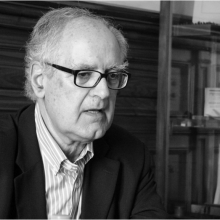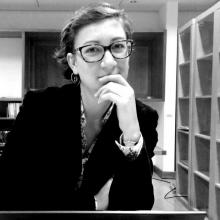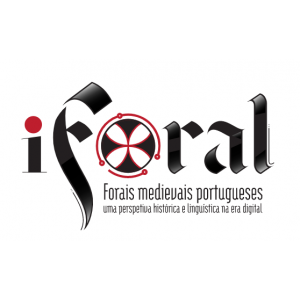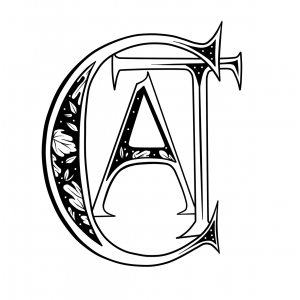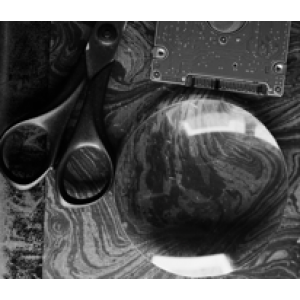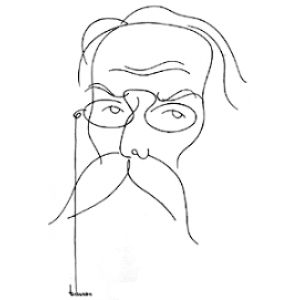Philology
Claiming the philologic inheritance of Luís Filipe Lindley Cintra, this Group aims at locating, interpreting and critically editing literary and non-literary, unpublished or unsatisfactorily published texts that are relevant to the history and the description of Portuguese language.
The group acts in the fields of genetic criticism, history of the book and bibliography. It currently focuses on the development of electronic resources that enhance the reading and the study of literary and metalinguistic texts, giving special attention to Middle Ages and the Baroque period. At the same time the genetic and critical edition of modern authors such as Almeida Garrett, Camilo Castelo Branco and Fernando Pessoa is proceeding.
The Group intends to build a reference frame for the study and philological practice in Portugal, making evident the contribution of Philology for the research in the History of Language, as well as for the preservation of literary and cultural memory.
Furthermore the research materializes in partnerships with the Programme in Textual Criticism and the Department of General and Romance Linguistics, teaching units at FLUL.
Membros
Integrated members with PhD
Integrated members without PhD
Colaboradores
Concluded
| Resources | Type |
|---|---|
| Bibliotrónica Portuguesa | Eletronic Edition |
| Boletim de Filologia | Eletronic Edition |
| Corpus of Ancient Texts | Corpus |
| Dicionario de Regionalismos e Arcaísmos, de Leite de Vasconcelos | Database |
| Dicionário Terminológico de Crítica Textual - DTCT | Corpus |
| Digitalization of Fernando Pessoa's private library | Eletronic Edition |
| Edition of O Livro de Virtuosa Bemfeyturia | Eletronic Edition |
| Lexicographical Corpus of Portuguese | Corpus |
| Medieval Texts in Galician, Galician-Portuguese, and Portuguese - BITAGAP | Database |
| Os Degraus do Parnaso | Corpus |
| Portuguese Manuscripts of Regra de São Bento | Eletronic Edition |
| Revista Lusitana | Eletronic Edition |
| Sebástica Manuscrita: catalogue and digital editions of Portuguese historiographical texts of the XVI and XVII centuries | Database |
| Toponomasticon Hispaniae | Corpus |
. (2017). O exercício da revisão e seu tratamento editorial: para uma edição da poesia de Pedro Homem de Mello. Revista Da Abralin, 16(1). http://doi.org/10.5380/rabl.v16i1.51933 |
. (2018). Erros de autor em testemunhos dactilográficos: para uma edição digital da poesia de Pedro Homem de Mello. Cem: Cultura, Espaço & Memória, 9, 275-285. Retrieved from http://ojs.letras.up.pt/index.php/CITCEM/article/view/6231 |
. (2016). Edições portuguesas das obras de Casimiro de Abreu. Navegações, 9(2), 128-135. http://doi.org/10.15448/1983-4276.2016.2.23700 |
. (2018). O dossier genético de Novelas do Minho: planificação e construção da obra. Linha D’água, n.º 31(2), 29-52. http://doi.org/https://doi.org/10.11606/issn.2236-4242.v31i2p29-52 |
. (2018). As emendas de Camilo: a sua importância para o estudo do processo criativo. Cem: Cultura, Espaço & Memória, n. 9, 261-274. |
. (2018). O Livro dos Mártires de Bernardo de Brihuega: dois séculos de leitura em português. Estudos De Linguística Galega, 10. Retrieved from http://www.usc.es/revistas/index.php/elg/article/view/4613/5656 |
. (2021). The concept of version in genetically oriented scholarly editing. Studia Neophilologica, 93(1), 107-119. http://doi.org/10.1080/00393274.2021.1885306 (Original work published 02/2021AD) |
. (2021). Um autógrafo e a tradição apógrafa de Jorge da Câmara. Miscelânea, 30, 161-180. Retrieved from https://seer.assis.unesp.br/index.php/miscelanea/article/view/1922/1891 |
. (2022). 17th-century holographs in a personal miscellany of D. Francisco Manuel de Melo. Alea, 24(3), 153-166. http://doi.org/10.1590/1517-106X/202224309 (Original work published 2022) |
. (2022). Ai flores, ai flores do verde pino: edição crítica e interpretação. Revista Galega De Filoloxía, 23, 20-35. Retrieved from https://revistas.udc.es/index.php/rgf/article/view/9141 |
. (2020). Inovações expressivas no cancioneiro de amigo do trovador Joam Soares Coelho. Argamed Lírica Galego-Portuguesa. Lingua, Sociolingüística E Pragmática 2, 20, 65-82. |
. (2023). Authors' rights vs. textual scholarship: a Portuguese overview. Journal Of Intellectual Property, Information Technology And E-Commerce Law, 14(4), 510-524. Retrieved from https://www.jipitec.eu/jipitec/article/view/19 |
. (2024). The materiality of typescripts in Pedro Homem de Mello’s writing practice. Diacrítica, 38(1), 117-129. http://doi.org/10.21814/diacritica.5594 |
. (2024). O 'garcialorquismo minhoto' de Pedro Homem de Mello. Colóquio/Letras , 217, 135-145. Retrieved from https://coloquio.gulbenkian.pt/cat/sirius.exe/do?bibrecord&id=PT.FCG.RCL.11140&org=I&orgp=217 |
. (1996). António Resende de Oliveira, Depois do Espectáculo Trovadoresco. Colóquio / Letras, 142, pp. 256-257. |
. (2024). Evocação de Rosalía de Castro em dois poemas de Pedro Homem de Mello. Suroeste: Revista De Literaturas Ibéricas, 14, 139-143. Retrieved from https://ortegamunoz.com/suroeste/ |
. (2015). Amor e Sátira no canto medieval em galego-português. Público. Lisboa. (Original work published 25-1-2015AD) |
. (1992). Manuel Pedro Ferreira, O Som de Martin Codax. Colóquio-Letras . |
. (1994). Estudios sobre literatura medieval galego-portuguesa. Anuario De Estudios Literarios Galegos. |
. (1996). Fragmento do Nobiliário do Conde Dom Pedro. Cancioneiro da Ajuda. Edição Fac-Similada do Códice Existente na Biblioteca da Ajuda. Românica. |
. (2007). Manuel Pedro Ferreira, Cantus Coronatus. 7 Cantigas d’ El Rei D. Dinis, Kassel: Reichenberger. Românica. |
. (2011). A tenção entre Mem Rodrigues Tenoiro e Juião Bolseiro: cumplicidade na oposição. Românica. |
. (1973). Notícia do grupo “Textos Medievais Portugueses. Boletim De Filologia, pp. 450-451. |
. (1995). O retorno à Filologia. Miscelânea De Estudos Linguísticos, Filológicos E Literários In Memoriam Celso Cunha. Rio de Janeiro: Nova Fronteira. |
. (1998). O Dicionário de Regionalismos e Arcaísmos (DRA) de Leite de Vasconcellos. Revista Lusitana. |
. (1998). Lusofonia. Discursos, Nº 15. |
. (1999). A fascinação dos espólios. Leituras. Arquivística Literária E Crítica Textual, pp. 161-166. Lisboa: Biblioteca Nacional. |
. (2006). Fallar e a tradição peninsular da Demanda. Santa Barbara Portuguese Studies: Galician / Portuguese Poetry, Prose And Linguistics. |
. (2006). A Demanda do Santo Graal e as suas edições. Revista Portuguesa De Filologia (Miscelânea Herculano De Carvalho). |
. (2007). Uma língua que veio de longe. Lusa – A Matriz Portuguesa. São Paulo. |







